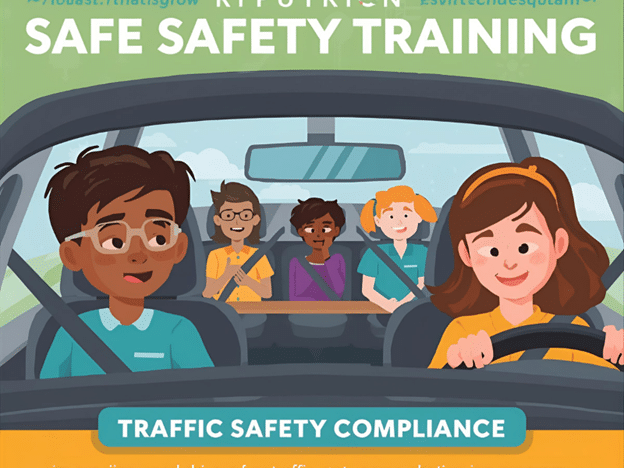Defensive Driving Courses Road Safety Awareness in 2026

Road safety continues to evolve as we move deeper into 2026. Defensive driving courses have become essential tools for drivers who want to protect themselves and others on increasingly complex roadways.
Why Defensive Driving Matters
Traffic patterns have changed dramatically over the past few years. More vehicles share the roads than ever before. Distracted driving incidents continue to rise despite awareness campaigns. These factors make road safety training critical for every driver.
Defensive driving courses teach you how to anticipate dangers before they become emergencies. You learn to read traffic patterns and predict what other drivers might do next. This proactive approach saves lives every single day.
What Modern Driver Education Programs
Today’s driver education programs go beyond basic vehicle operation. They focus on real-world scenarios that drivers face daily. You’ll learn how to handle aggressive drivers and navigate construction zones safely. Weather-related challenges get special attention in most comprehensive programs.
Safe driving practices form the foundation of every quality course. Instructors teach proper following distances and how to scan intersections effectively. You’ll understand how speed affects your reaction time and stopping distance.
Many programs now include technology-focused modules. These sections cover how to manage navigation systems without losing focus on the road. You’ll learn the safest ways to handle phone calls and other potential distractions.
Traffic Safety Compliance and Legal Benefits

Taking defensive driving courses often provides legal and financial advantages. Many states offer insurance discounts to drivers who complete approved programs. Some courts allow ticket dismissal for drivers who voluntarily enroll in road safety training.
Traffic safety compliance requirements vary by location. Commercial drivers often need regular certification to maintain their licenses. Even recreational drivers benefit from understanding current traffic laws and regulations.
Insurance companies recognize that trained drivers pose lower risks. Your premium reductions can last for several years after course completion. Some policies require periodic training to maintain these discounts.
Key Skills Taught in Defensive Driving Courses
Space management ranks among the most important concepts you’ll master. You learn to create cushions of safety around your vehicle in every direction. This gives you escape routes when unexpected situations develop.
Hazard recognition training sharpens your ability to spot potential problems early. You’ll practice identifying dangerous situations before they escalate. This skill becomes automatic with proper instruction and practice.
Emergency response techniques prepare you for worst-case scenarios. You’ll know how to handle brake failures and tire blowouts. Skid control and collision avoidance maneuvers become second nature.
Online vs In-Person Road Safety Training
The internet has transformed the way individuals receive driver education programs. Online defensive driving classes are flexible in time. Students are able to take modules at their pace and from anywhere.
Face-to-face training gives on-the-job training is preferred by some drivers. The teachers have the ability to respond to questions instantly and offer individual feedback. The components behind the wheel must be physically present in training facilities.
The hybrid models take the advantages of the two approaches to the extreme. You do online theoretical parts and then go to practical classes. This structure provides a maximum level of convenience while also allowing time for the full development of skills.
How Defensive Driving Reduces Accident Rates
Statistics are also consistent that defensive driving classes lower the rates of accidents. Graduates are more risk-sensitive and make better decisions. They keep a safer distance of following and take avoidance of aggressive maneuvers.
It is not limited to personal drivers on economic effects. The reduced accidents will translate to reduced insurance costs for whole communities. Emergency services are also in need of less demand in case prevention programs are effective.
The ripple effects of safe driving teachings in these courses are felt. The act of a single driver acting in a predictable and polite manner creates an impact on other people who are in the same place. This positive trend can revolutionize complete traffic ecosystems.
Choosing the Right Defensive Driving Course
Check up on providers in your region and get approved. States have lists of certified programs maintained in state motor vehicle departments. Find some coursework that discusses the relevant traffic legislation and contemporary car technology.
Check previous reviews of the participants to understand the quality of the course. Good road safety training must seem to be part of your everyday driving life. The programs ought to be in a balance between theory and practice.
Understand your learning style and use it to choose between formats. Video-intensive online courses could be an option for the visual learners. Practical learners normally favor face-to-face learning.
Future of Driver Education Programs
Advanced technology continues to reshape how we teach safe driving practices. Virtual reality simulations now recreate dangerous scenarios without real-world risks. These immersive experiences prepare drivers for situations they might never encounter otherwise.
Artificial intelligence systems can analyze driving patterns and provide personalized feedback. This data-driven approach identifies specific areas where individual drivers need improvement. Customized training plans address unique weaknesses efficiently.
Action for Road Safety

Enrolling in defensive driving courses represents an investment in your safety and future. The skills you develop last a lifetime and protect everyone you encounter on the road. Traffic safety compliance becomes easier when you understand the reasoning behind regulations.
Don’t wait for an accident or traffic violation to motivate action. Proactive road safety training prepares you for challenges before they arise. Your family and community benefit every time you drive with enhanced awareness and skill.
Start researching approved programs today. Compare options based on format and curriculum, and instructor qualifications. Take the first step toward becoming a safer and more confident driver in 2026.
FAQs
1. What is a defensive driving course?
A defensive driving course teaches drivers how to anticipate and avoid hazards, improving safety and confidence on the road through practical and theoretical training.
2. How do defensive driving courses improve road safety?
These courses reduce the risk of accidents by promoting safe driving techniques, hazard recognition, and stress management during driving.
3. What are the benefits of taking a defensive driving course?
Participants may receive insurance discounts, avoid points on their driving record, and gain skills that help prevent costly accidents and traffic violations.
4. Who should take defensive driving courses?
Both new and experienced drivers benefit, especially those with recent traffic violations, accidents, or those aiming to improve their driving habits and compliance.
5. How do defensive driving courses relate to traffic safety compliance?
They teach adherence to traffic laws and regulations, helping drivers avoid violations and contributing to an overall safer road environment.
